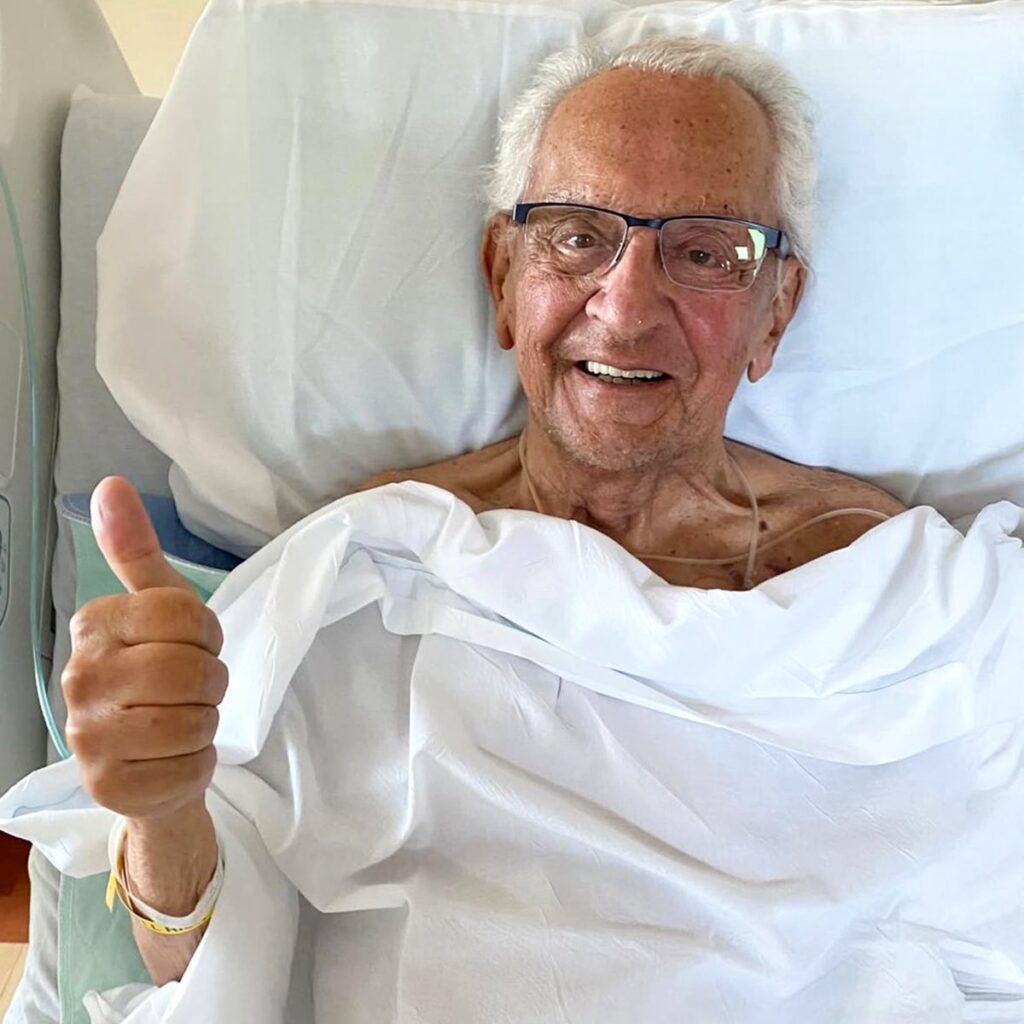He wasn’t just a judge; he was a global symbol of kindness in the courtroom. Millions of people viewed Frank Caprio’s remarks and rulings online, earning him the title of “Nicest Judge in the World.” Following a fight with cancer, he passed away at the age of 88, leaving a compassionate legacy that redefined justice.
In a world where the justice system is often perceived as cold and rigid, Judge Frank Caprio stood out as a beacon of compassion, empathy, and humanity. Known widely as the “nicest judge in the world,” he captured hearts across the globe not merely with his rulings but with the spirit of fairness, kindness, and understanding he brought into his courtroom. On August 20, 2025, Frank Caprio passed away at the age of 88 after a long battle with cancer, leaving behind a legacy that transcends the walls of the courtroom and touched millions who may never have even stepped foot inside one. His passing marks the end of an era for those who came to see justice not as an unbending rulebook, but as an act of humanity guided by empathy.
Francis “Frank” Caprio was born on November 23, 1936, in Providence, Rhode Island, the son of Italian immigrants. His father, a milkman, and his mother, a homemaker, instilled in him the values of hard work, humility, and community service—values that would go on to define his career. Growing up in a modest household during a time when immigrant families struggled to find their place in America, Caprio understood firsthand the challenges of ordinary people. It was this upbringing that deeply influenced his judicial philosophy later in life: that behind every case, no matter how small, was a human being with a story that deserved to be heard.
Judge Caprio first gained recognition not only for his work on the bench but for his unique way of delivering justice. Serving as Chief Judge of the Providence Municipal Court, he presided over cases that often involved minor traffic violations, parking tickets, and municipal infractions. But unlike many judges who treated such cases as routine paperwork, Caprio listened intently to defendants, often asking them about their lives, their struggles, and their families. It was not unusual for him to waive fines for struggling single parents, show leniency to elderly citizens on fixed incomes, or reduce penalties for students who were trying to build a better life. To Caprio, the courtroom was not simply a place to enforce laws, but a place to remind people that compassion could coexist with justice.
His philosophy gained international attention through the television program Caught in Providence, which broadcast real cases from his courtroom. What began as a local experiment soon exploded into a global phenomenon, with millions of viewers watching clips online. The show’s viral moments—such as when Caprio forgave fines for individuals going through hardship or shared heartfelt conversations with children brought into court—transformed him into a symbol of “justice with a heart.” Social media platforms carried his courtroom clips across continents, and people from all walks of life wrote to him, thanking him for restoring their faith in humanity.
Throughout his career, Judge Caprio often repeated one guiding principle: that justice should never lose sight of mercy. He believed that laws were written to maintain order, but that the application of those laws required understanding. “The law is a structure,” he once explained, “but humanity is the foundation.” This belief earned him admiration not only from those who appeared before him but from fellow judges, legal scholars, and the public at large. It was not just his decisions that made him remarkable—it was the sincerity with which he treated every individual as worthy of respect.
Caprio’s compassion did not mean he was lax in his duties. He maintained discipline in his courtroom and expected honesty from those who stood before him. What set him apart was his ability to balance firmness with understanding. For him, a traffic ticket was not merely a violation but often a window into a larger life circumstance—a parent trying to make ends meet, a worker rushing to a job, an immigrant still adjusting to life in a new country. In each case, he sought not just to enforce the law, but to apply it in a way that upheld dignity.
Beyond the courtroom, Judge Caprio lived a life dedicated to service. He pursued education at Providence College before earning his law degree at Suffolk University Law School in Boston. He went on to practice law, teach, and serve in multiple civic capacities. He was also involved in numerous charitable causes, focusing on education and community development. Known for his humility, he often credited his successes to his family and to the values his parents instilled in him as a young boy.
His death at 88 after a courageous battle with cancer has sparked tributes from around the world. Political leaders, fellow judges, lawyers, and ordinary citizens have expressed their grief, recalling how Caprio reminded them that justice could be kind. Rhode Island Governor and city officials hailed him as not just a legal figure but as a cultural icon who made Providence proud. For many viewers globally, he was not simply a judge but a grandfatherly figure who listened without judgment and ruled with compassion. His courtroom became a stage where the best of human decency was showcased.
Frank Caprio’s passing is not only the loss of a judge but the loss of a moral voice in an often harsh legal landscape. His ability to humanize the law in ways that resonated far beyond Rhode Island ensured that his work will live on. Clips of his rulings continue to inspire millions on YouTube, TikTok, and Facebook, with comments from people across countries expressing how his compassion gave them hope. In an age of rising cynicism, he represented a rare reminder that authority can be gentle, and that power can be wielded with kindness.
Judge Caprio is survived by his wife, children, and grandchildren, who have spoken of his deep love for family. To them, he was not only a public figure but a warm, devoted man whose personal values mirrored his public persona. His family shared that despite his fame, he never let it overshadow the importance of small moments—family dinners, community gatherings, and mentoring young lawyers. Even during his battle with cancer, Caprio remained optimistic, often encouraging those around him to cherish every moment and continue spreading kindness.
The impact of Frank Caprio will extend far into the future. His philosophy of combining empathy with justice has already inspired new generations of judges and legal professionals. Law schools have studied his methods as examples of “restorative justice in practice,” while educators point to him as proof that the justice system can be both fair and humane. He demonstrated that kindness does not weaken the law, but strengthens its moral authority.
As the world mourns his death, many are left reflecting on the timeless lesson Judge Caprio embodied: that justice without compassion is incomplete. His rulings may have been simple in nature—waiving a fine here, offering a kind word there—but their cumulative effect was profound. He reminded society that even in the smallest acts of fairness, humanity shines brightest.
Judge Frank Caprio’s life story reads as a testament to the belief that one person’s compassion can ripple across the world. From a modest immigrant household in Rhode Island to a global icon of empathy, his journey underscores the enduring truth that kindness leaves the most powerful legacy. As the curtains close on his extraordinary life, the echoes of his wisdom will continue to inspire, reminding us all that true justice is never just about rules—it is about people.
Related News: Read More




Pingback: Punjabi Actor Jaiswinder Bhalla Dies at 65..
Pingback: John Bolton in Spotlight as FBI Raids His Home and Office